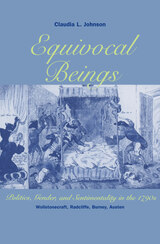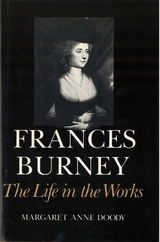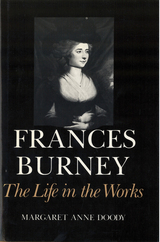3 books about 1752-1840

Equivocal Beings
Politics, Gender, and Sentimentality in the 1790s--Wollstonecraft, Radcliffe, Burney, Austen
Claudia L. Johnson
University of Chicago Press, 1995
In the wake of the French Revolution, Edmund Burke argued that civil order depended upon nurturing the sensibility of men—upon the masculine cultivation of traditionally feminine qualities such as sentiment, tenderness, veneration, awe, gratitude, and even prejudice. Writers as diverse as Sterne, Goldsmith, Burke, and Rousseau were politically motivated to represent authority figures as men of feeling, but denied women comparable authority by representing their feelings as inferior, pathological, or criminal. Focusing on Mary Wollstonecraft, Ann Radcliffe, Frances Burney, and Jane Austen, whose popular works culminate and assail this tradition, Claudia L. Johnson examines the legacy male sentimentality left for women of various political persuasions.
Demonstrating the interrelationships among politics, gender, and feeling in the fiction of this period, Johnson provides detailed readings of Wollstonecraft, Radcliffe, and Burney, and treats the qualities that were once thought to mar their work—grotesqueness, strain, and excess—as indices of ideological conflict and as strategies of representation during a period of profound political conflict. She maintains that the reactionary reassertion of male sentimentality as a political duty displaced customary gender roles, rendering women, in Wollstonecraft's words, "equivocal beings."
Demonstrating the interrelationships among politics, gender, and feeling in the fiction of this period, Johnson provides detailed readings of Wollstonecraft, Radcliffe, and Burney, and treats the qualities that were once thought to mar their work—grotesqueness, strain, and excess—as indices of ideological conflict and as strategies of representation during a period of profound political conflict. She maintains that the reactionary reassertion of male sentimentality as a political duty displaced customary gender roles, rendering women, in Wollstonecraft's words, "equivocal beings."
[more]

Frances Burney
Doody, Margaret A
Rutgers University Press, 1988
Treating Frances Burney (1752-1840) with the seriousness usually reserved for later novelists of the nineteenth and twentieth centuries, Margaret Anne Doody combines biographical narrative with informed literary criticism as she analyzes not only Burney's published novels, but her plays, fragments of novels, poems, and other works never published. Doody also draws upon a mine of letters and diaries for detailed and sometimes surprising biographical information. Burney's feelings and emotions forcefully emerge in her sophisticated and complex late novels, Camilla and The Wanderer. Her novels all relate to personal experience; as an artist she is attracted to the violent, the grotesque, and the macabre. She is a powerful comic writer, but her comedy is far from reflecting a shallow cheerfulness. Bringing a novelist's perspective to her material, in this 1989 book Doody shows an appreciation of the many dimensions of a predecessor's writings and she tells her story with force and conviction.
[more]

Frances Burney
The Life in the Works
Doody, Margaret A
Rutgers University Press, 1988
Treating Frances Burney (1752-1840) with the seriousness usually reserved for later novelists of the nineteenth and twentieth centuries, Margaret Anne Doody combines biographical narrative with informed literary criticism as she analyzes not only Burney's published novels, but her plays, fragments of novels, poems, and other works never published. Doody also draws upon a mine of letters and diaries for detailed and sometimes surprising biographical information. Burney's feelings and emotions forcefully emerge in her sophisticated and complex late novels, Camilla and The Wanderer. Her novels all relate to personal experience; as an artist she is attracted to the violent, the grotesque, and the macabre. She is a powerful comic writer, but her comedy is far from reflecting a shallow cheerfulness. Bringing a novelist's perspective to her material, in this 1989 book Doody shows an appreciation of the many dimensions of a predecessor's writings and she tells her story with force and conviction.
[more]
READERS
Browse our collection.
PUBLISHERS
See BiblioVault's publisher services.
STUDENT SERVICES
Files for college accessibility offices.
UChicago Accessibility Resources
home | accessibility | search | about | contact us
BiblioVault ® 2001 - 2024
The University of Chicago Press









